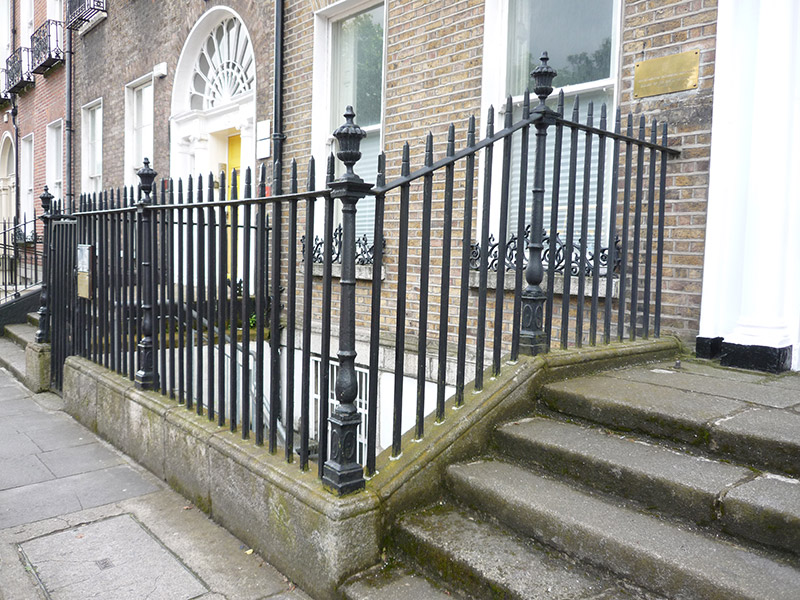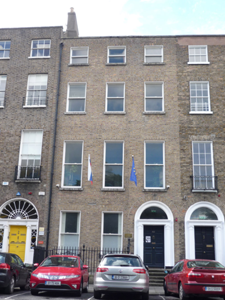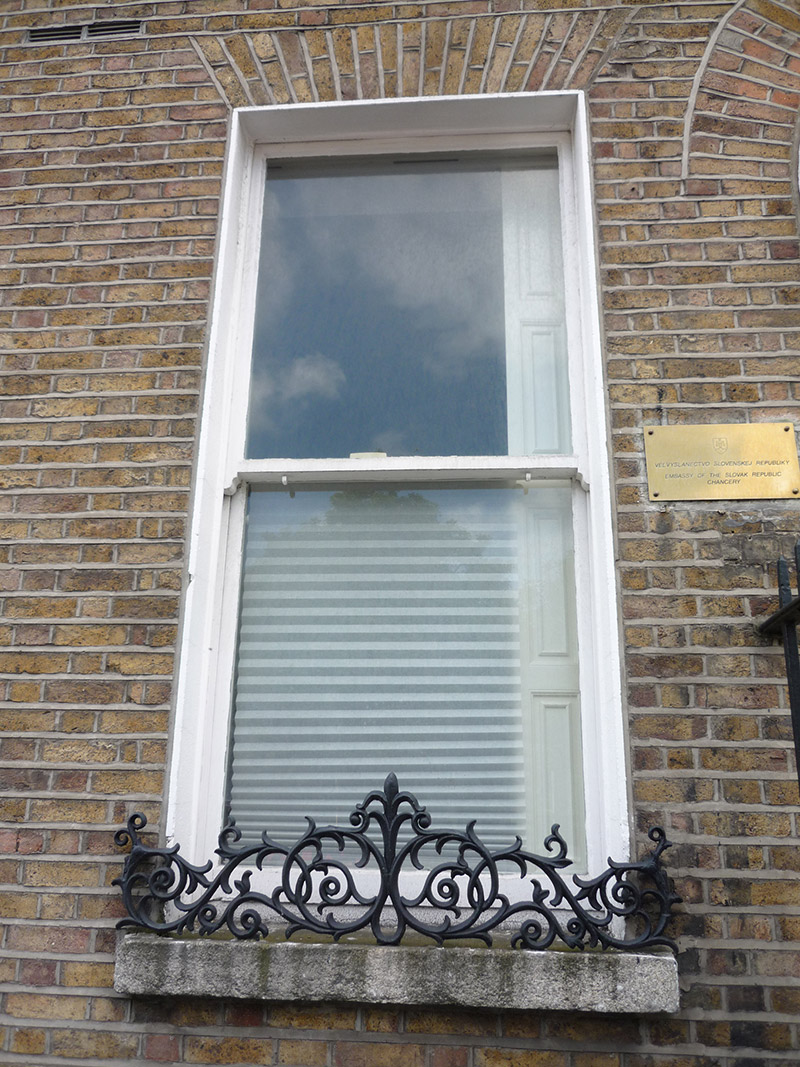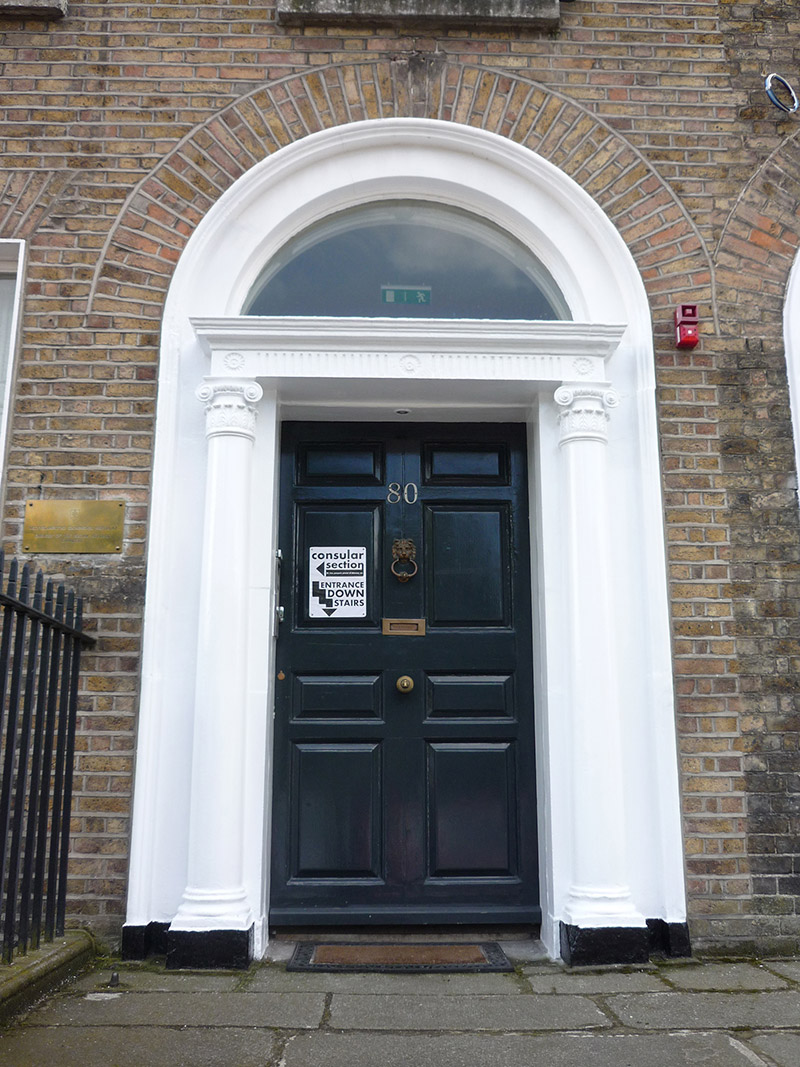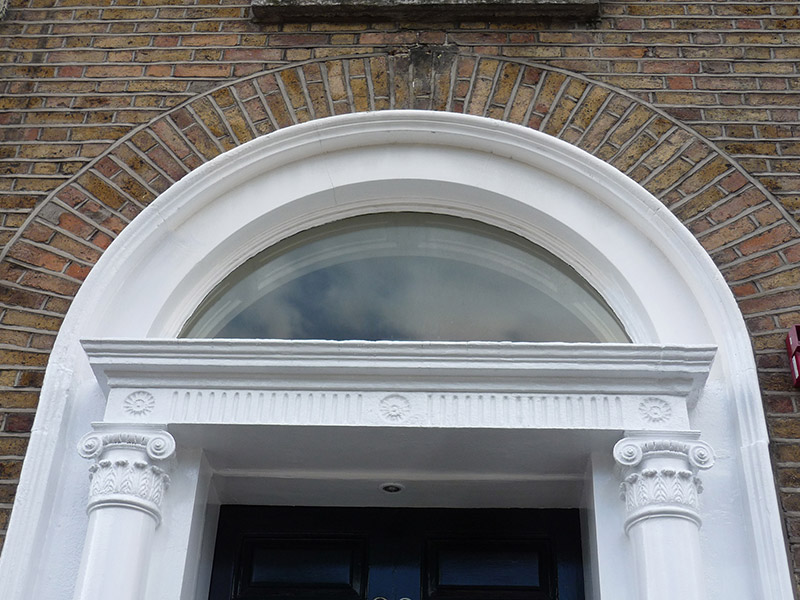Survey Data
Reg No
50100408
Rating
Regional
Categories of Special Interest
Architectural, Artistic
Original Use
House
In Use As
Embassy
Date
1780 - 1800
Coordinates
316543, 233511
Date Recorded
29/07/2016
Date Updated
--/--/--
Description
Attached three-bay four-storey former house over basement, built c. 1790 as part of terrace of eight (Nos. 80-87), having bow to eastern bays of rear elevation, and two and three-storey return. Now in use as embassy. Pitched slate roof to front, behind Flemish bond brown brick parapet with granite coping, and with two hipped roofs to rear perpendicular to street, curved over bowed bays and higher western roof shared with neighbouring property. Shouldered rendered chimneystacks to east with clay pots, concealed gutters, and with cast-iron downpipe to east. Flemish bond brown brick walls with moulded granite plinth over painted rendered walls to basement. Square-headed window openings with painted rendered reveals, soldier arches and granite sills; exposed granite block-and-start surrounds to basement with wrought-iron grilles. Round-headed stairs window opening to rear elevation. Timber sliding sash windows, six-over-six pane to basement and one-over-one pane elsewhere to front; variety of timber sash windows to rear. Decorative cast-iron vignettes to ground floor windows. Round-headed principal doorway with moulded architrave, Ionic columns, fluted frieze and moulded entablature, plain fanlight and eight-panel timber door with brass furniture. Granite platform with five granite steps. Basement area enclosed by wrought-iron railings with decorative cast-iron posts on granite plinth. Replacement timber-sheeted door provides access to basement. Casey notes 'three pretty stucco tympana to rear ground-floor room'. Yard to rear.
Appraisal
No. 80 Merrion Square is a well-proportioned house, whose relatively modest façade is enlivened by the its Ionic doorcase. The good-quality metalwork to its railings and the vignettes to the window sills provides additional features of interest, and the intact basement area and setting details contribute to the intact appearance of the square. The building forms part of the original development of the eighteenth-century square by the Fitzwilliam Estate. The square is one of the best-preserved Georgian streetscapes in Ireland. The north, east and south sides are lined with terraced houses of eighteenth and early nineteenth-century date, while the west side is terminated by the garden front of Leinster House. The houses maintain a relatively uniform building height and design, attributed to standards promoted in Fitzwilliam's leases. Individuality was introduced through the design of doorcases, window ironwork and interior decorative schemes. The south side of Merrion Square was initially set in large plots to twelve lessees; plots were leased consecutively from east to west up to 1791.
